The Physics of SOIL
Structure, Organization, and Interactions of Living-SOILs
Recent Publications
Precipitation Disruption: When the Rhythm of the Rain Throws Soil Organic Matter Off-Beat.
Min et al,
New Phytologist
Soil Structure Changes Under Reduced Tillage and Cover Cropping Enhance Carbon ...
Alavarez-Sagrero et al,
Vadose Zone J. (in press)
Defining Soil Science: Balancing Fundamental Research and Societal Needs
Ghezzehei, T.A. and A.A. Berhe
Soil Sci. Soc. Am. J.
Updates & News
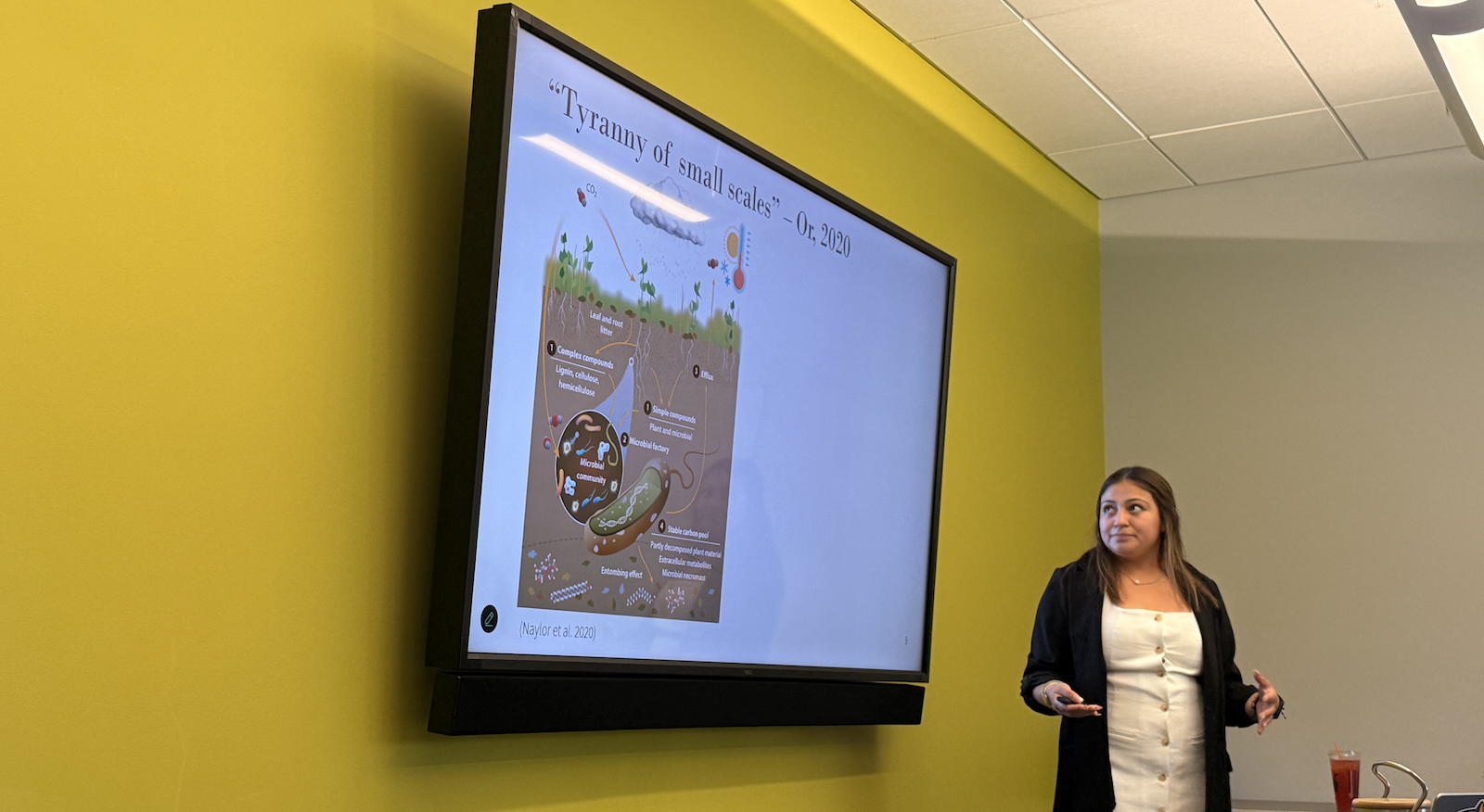
Yulissa Defends PhD Dissertation
Dr. Yulissa Perez-Rojas successfully defends her dissertation on scale integration challenges in carbon predictions, addressing systematic biases across scales.
Read More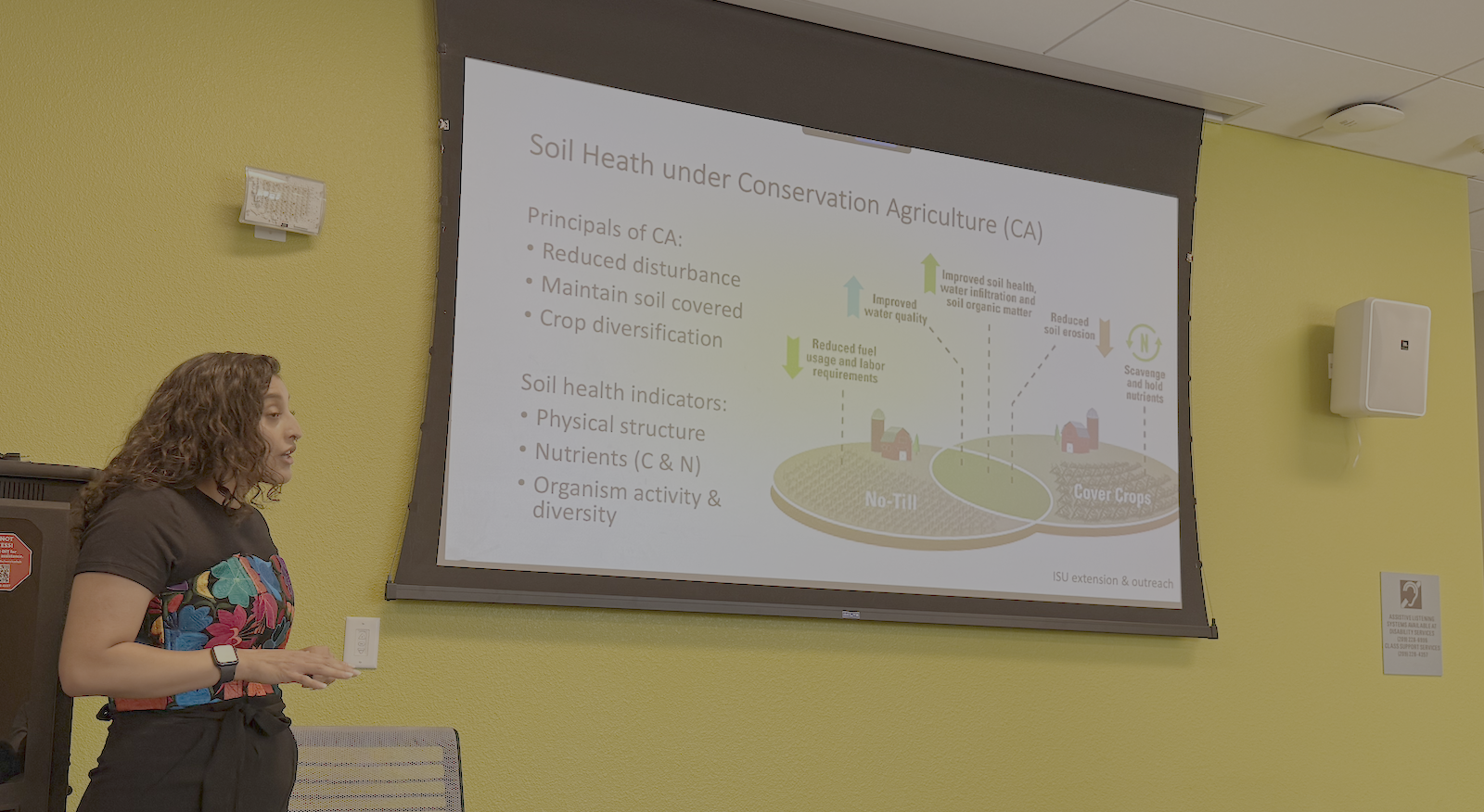
Jennifer defended dissertation
Dr. Jennifer Alvarez-Sagrero defended her dissertation on soil health and physical protection of organic matter under long-term conservation management.
Read More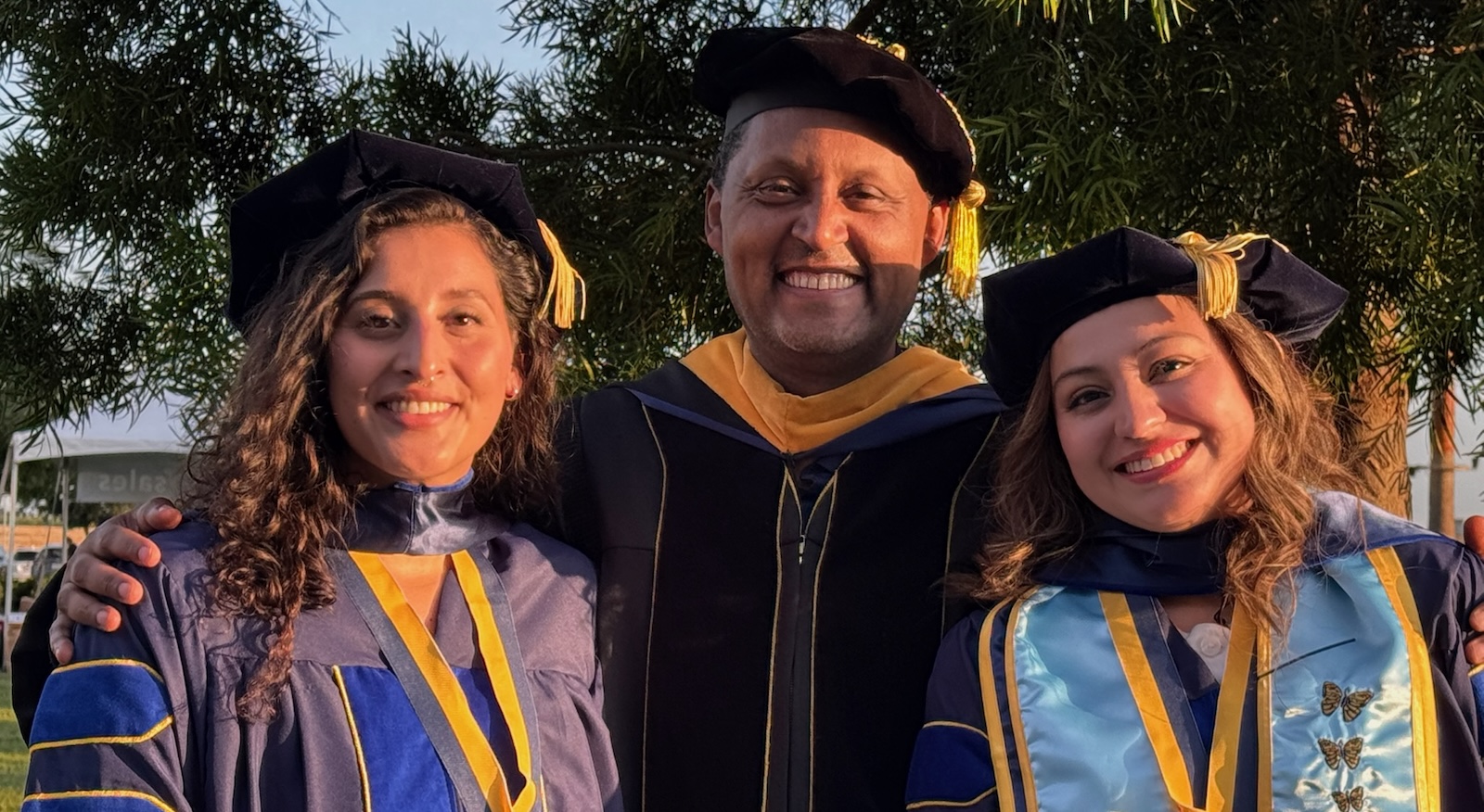
PhD Hooding Ceremony
Celebrating Jennifer Perez-Rojas and Yulissa Alvarez-Sagrero as they participate in PhD hooding cermony, an important milestone. Congratulations
Read More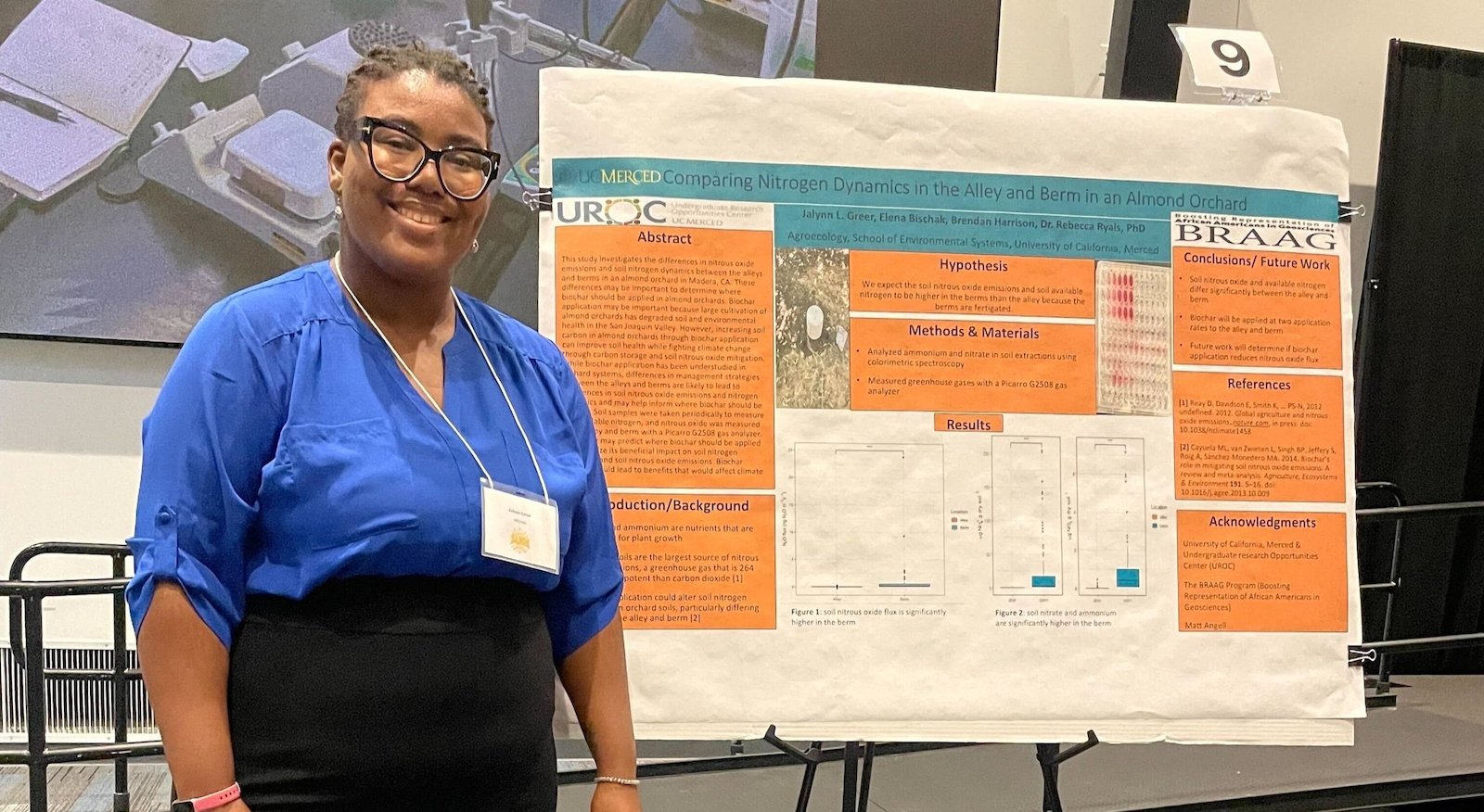
Let’s BRAAG about Jalynn
NASA ACRES blog--Let’s BRAAG about Jalynn Greer, a Kentucky State University Scholar who is Bridging a Career Path in Nursing and Agriculture success!
Read MoreBluesky Updates
Loading posts from Bluesky...
Research Areas
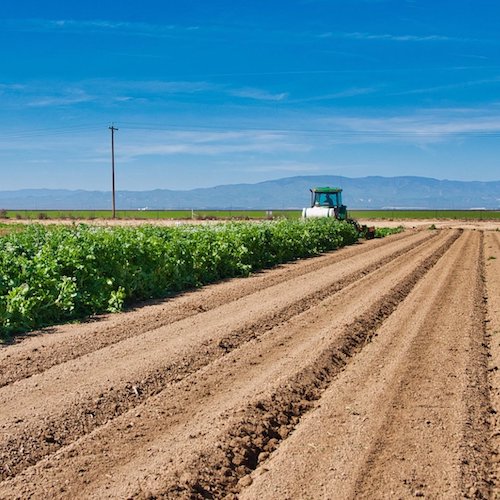
Sustainable Agriculture
Reduced tillage systems, cover cropping strategies, and organic amendments to enhance soil structure, water retention, and agricultural sustainability.
Learn More →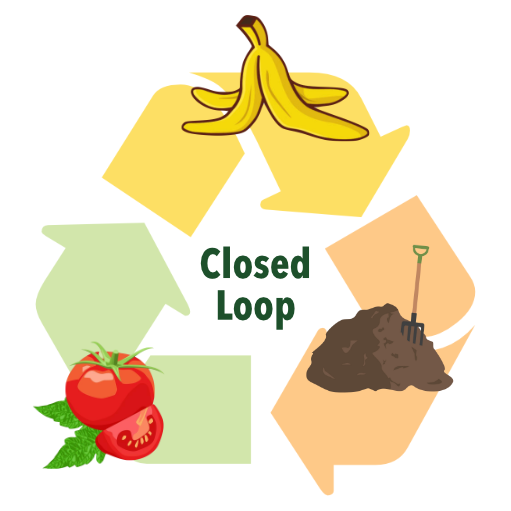
Soil Structure & Carbon Dynamics
Fundamental research on soil aggregation processes, structure formation, and carbon cycling mechanisms that control soil physical and chemical properties.
Learn More →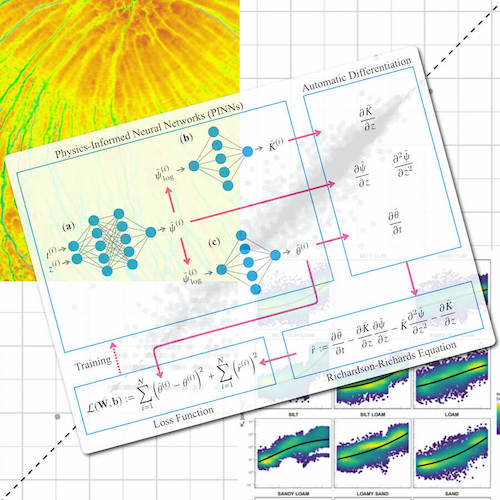
Physics-Constrained AI
Development of novel machine learning models that incorporate physical principles and constraints to predict soil behavior and environmental processes.
Learn More →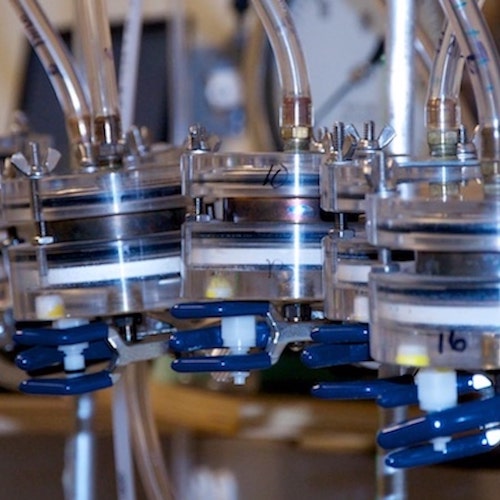
Water Flow & Hydraulics
Characterizing and modeling water movement in unsaturated soils, from measurement techniques to advanced numerical simulations of infiltration and redistribution.
Learn More →Courses
ES 200 Environmental Systems
A comprehensive overview of environmental systems, exploring the complex interactions between physical, biological, and social components. This course examines fundamental principles of systems thinking applied to environmental challenges, with emphasis on interdisciplinary approaches to sustainability science. Graduate.
Recent Offering: Fall 2025
ESS 110 Hydrology & Climate
Basics of the hydrological cycle and the global climate system. Fundamentals of surface water hydrology, hydrometeorology, evaporation, precipitation, statistical and probabilistic methods, unit hydrograph and flood routing. Undergraduate.
Recent Offering: Fall 2024, 2025
ES 212 Subsurface Hydrology (Archive)
Hydrologic and geologic factors controlling the occurrence and use of groundwater on regional and local scales. Physical, mathematical, geologic and engineering concepts fundamental to subsurface hydrologic processes. Introduction to ground-water flow and transport modeling. Graduate.
Recent Offering: Spring 2025
